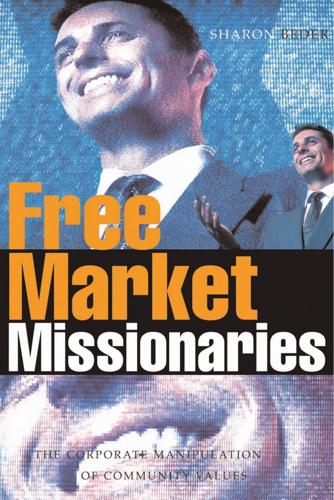
Free Market Missionaries: The Corporate Manipulation of Community Values
by
Sharon Beder
Published 30 Sep 2006
‘A Sapling’s Sound Roots; Germans Take to Shares’, The Economist, 10 March 2001, p1; George Melloan, ‘Europe’s New Shareholder Culture Spurs Big Changes’, Wall Street Journal, 9 May 2000, pA27. 206 FREE MARKET MISSIONARIES 31 ‘A Sapling’s Sound Roots’, p1. 32 Steven Greenhouse, ‘France Embraces “Popular Capitalism’’’, New York Times, 8 June 33 34 35 36 37 38 39 40 41 42 43 44 45 46 47 48 49 50 51 1987; Shawn Tully, ‘Europe Goes Wild over Privatisation’, Fortune, vol 115, no 5, 1987. Greenhouse, ‘France Embraces “Popular Capitalism”’. Hagaman T. Carter, ‘The Myth of Shareholder Democracy’, Management Accounting, vol 72, no 11, 1991. Ibid. Ralph Nader and Joel Seligman, ‘The Myth of Shareholder Democracy’, in Mark Green, et al.
…
This was supposed to establish, in the words of one Conservative minister, ‘a new breed of owners’ and have ‘an important effect on attitudes’, thereby breaking down ‘the divisions between owners and earners’.20 The Confederation of British Industry (CBI) formed a wider share ownership taskforce and the government formed the Wider Share Ownership Council. The float of shares in privatized companies was said to have ‘given a boost to popular capitalism unimaginable in the pre-Thatcher era’ and the profits made by millions of small investors made it ‘difficult to question the logic underpinning privatisation’.21 Conservatives used the rhetoric that privatization would spread wealth more widely in the community and create ‘real public ownership’ of government enterprises to sell privatization to the electorate and to take away public ownership.
…
Its sale of shares in glass manufacturer Saint-Gobain was promoted in a $6 million advertising campaign that included television ads that SHAREHOLDER DEMOCRACY 197 sold the shares ‘the way US companies market soap or toothpaste . . . A network of more than 20,000 banks and post offices pushed shares’ to customers conducting their normal business.32 Finance Minister Edouard Balladur declared his campaign for ‘popular capitalism’ a success when floats of these industries were heavily oversubscribed by people wanting to buy shares in them. As in the UK, small shareholders quickly sold their shares when the price went up. Even then, the share floats could be seen as a success in that ordinary people had tasted ‘the fruits of capitalism’, which some said was one of the aims of the exercise – an effort to lure people away from socialism.
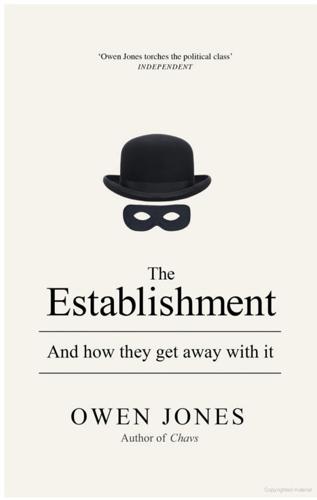
The Establishment: And How They Get Away With It
by
Owen Jones
Published 3 Sep 2014
Instead, they will work quietly to do their very best, aided by the Murdoch press and others, to make sure Labour does not get in.’16 In other words, large corporate interests, deeply embedded in government and backed by the mass media, were muscling up with other sections of the Establishment to take on a democratically elected politician. Here is the legacy of the Thatcherite crusade of mass privatization in the 1980s. Selling off public assets was billed as creating a new ‘popular capitalism’; the result was anything but. Four of the Big Six are owned by foreign companies. The only state-run energy provider is EDF – which is owned by the French government. British ‘popular capitalism’ has actually been in a steep long-term decline. Well over 50 per cent of shares on the London Stock Exchange were owned by individuals in 1963, but today that number is just over 10 per cent. By 2013, 53.2 per cent of British shares were owned by foreign investors.
…
In the first half of 2011 alone, 60 per cent of new-build homes in central London were bought by overseas investors. The £5.2 billion splashed out by foreign investors on London’s housing in 2011 dwarfed all government investment in the Affordable Housing Programme in the whole of England.17 In no sense could Britain’s modern economic system be described as ‘popular capitalism’, dominated by small-time entrepreneurs, shareholders and property owners. Not that the failures of free-market dogma deter David Cameron’s government, keen as it is to finish what High Thatcherism had begun. Even Margaret Thatcher baulked at selling off the Royal Mail, making it clear she was ‘not prepared to have the Queen’s head privatized’.
…
While the pension fund – that is, the Royal Mail’s debt – remained in public hands, the profitable business was sold off. Yet the company was drastically undervalued, leading it to be privatized at hundreds of millions of pounds below its actual worth, depriving the taxpayer of so much revenue. There was little pretence at popular capitalism. Investors had to have a minimum of £750 available to buy shares. ‘It is disappointing that so much has been reserved for international funds and speculators, taking away from all individual applicants in the UK,’ complained Malcolm Hurlston, the chairman of the Esop Centre, which advocates workers’ shareholding schemes.18 Two-thirds of the company was bought up by City institutions; big winners included sovereign wealth funds, including foreign dictatorships such as Kuwait.

The Extreme Centre: A Warning
by
Tariq Ali
Published 22 Jan 2015
New Labour enthusiasts do not like to be reminded that between 1990 and 1996, a million people lost their homes through repossession by the mortgage companies, while 390,000 homes, once publicly owned, were seized by those companies. Come 2009 almost one million properties were estimated to be in ‘negative equity’: the homeowners had paid too much for them in the first instance and could not get their money back. Thatcher had resolved to make Britain a nation of small businesses. This was the much vaunted ‘popular capitalism’. Yet by 1997, the year of Labour’s victory, personal bankruptcies had ‘stabilized’ at 22,000 a year; 30,000 companies had become insolvent between 1990 and 1997. The ‘flexible labour market’ so beloved by Thatcher, Blair, and the transnationals had, in reality, made unemployment a mainstream experience.
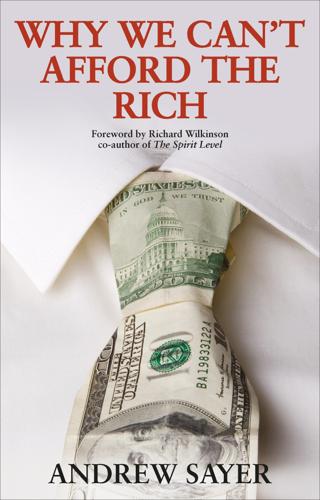
Why We Can't Afford the Rich
by
Andrew Sayer
Published 6 Nov 2014
The richest 1% of the population own more than the rest put together.101 The idea of a ‘popular capitalism’, touted at the time of Margaret Thatcher’s wave of privatisations in the 1980s, in which everyone would own shares, predictably did not materialise. Most of the shares from the privatisation of nationalised industries that the public were allowed to buy were quickly sold on to large institutional ‘investors’ in order to make quick gains. So the privatisations of the 1980s did not produce popular capitalism, though it has to be said that this one-off source of unearned income was popular at the time.
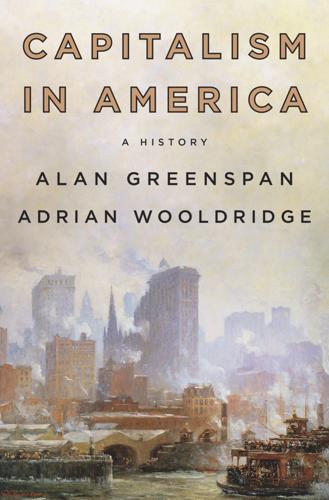
Capitalism in America: A History
by
Adrian Wooldridge
and
Alan Greenspan
Published 15 Oct 2018
Many leading economies are dangerously focused on one city: most obviously the United Kingdom but also South Korea and Sweden. The United States has numerous centers of excellence: New York for finance, San Francisco for technology, Houston for energy, and Los Angeles for films. American capitalism is also the world’s most democratic. The United States was the birthplace of the engines of popular capitalism, from mass production to franchising to mutual funds. In many countries capitalism has always been associated with a plutocratic elite. In America, it has been associated with openness and opportunity: making it possible for people who were born in obscurity to rise to the top of society and for ordinary people to enjoy goods and services that were once confined to the elites.
…
Lewis sneers at the standardized nature of all these products—he describes one room as being “as neat, and as negative, as a block of artificial ice”—but Floral Heights represented the democratization of wealth and opportunity as the productivity gains of the previous decades transformed the lives of ordinary Americans. THE COMPANY GOES PUBLIC Democratization extended to the core institution of American business life, the business corporation: the total number of shareholders increased from about a million at the turn of the century to up to 7 million in 1928. The most enthusiastic practitioner of popular capitalism was AT&T, which increased the number of stockholders from 10,000 in 1901 to 642,180 in 1931. The principal stockholders of the country’s biggest railroad (Pennsylvania Railroad), the biggest public utility (AT&T), and the biggest industrial corporation (U.S. Steel) owned less than 1 percent of the shares.
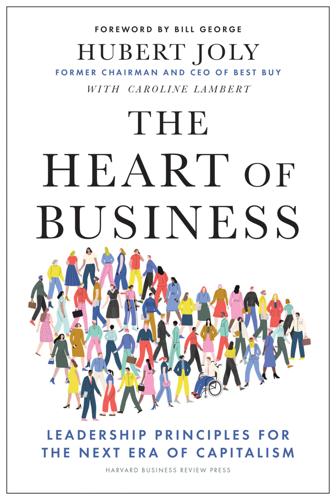
The Heart of Business: Leadership Principles for the Next Era of Capitalism
by
Hubert Joly
Published 14 Jun 2021
utm_campaign=Global:%20Trust%20Barometer%202020&utm_source=Website; Pew Research Center, “Stark Partisan Divisions in Americans’ Views of ‘Socialism,’ ‘Capitalism,’ ” FactTank: News in the Numbers, June 25, 2019, https://www.pewresearch.org/fact-tank/2019/06/25/stark-partisan-divisions-in-americans-views-of-socialism-capitalism/; and Lydia Saad, “Socialism as Popular as Capitalism Among Young Adults in the U.S.,” Gallup, November 25, 2019, https://news.gallup.com/poll/268766/socialism-popular-capitalism-among-young-adults.aspx. 2. In May 2016, Time magazine’s cover article was about “American Capitalism’s Great Crisis,” which argued that “the U.S. system of market capitalism itself is broken.” And in 2018, The Economist launched Open Future, an ongoing discussion about fixing the flaws of capitalism.
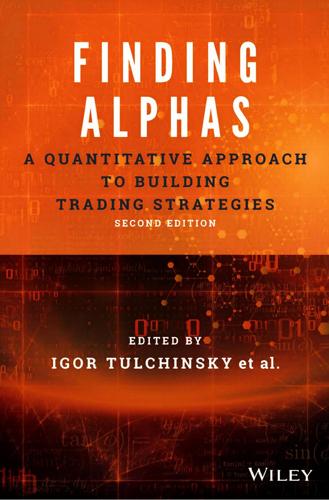
Finding Alphas: A Quantitative Approach to Building Trading Strategies
by
Igor Tulchinsky
Published 30 Sep 2019
Another type of capital arbitrage is to trade on changes in the company’s capital structure, such as share buybacks, share issuances, debt issuances, or debt exchanges. These trades do not express a view on the overall quality of the company but on relative mispricings or shifts in value among different forms of capital. One of the most popular capital structure arbitrage plays is to profit from mispricings between a company’s equity and its bonds or credit default swaps. This strategy has gained a lot of popularity with the growth of the CDS market. Consider, for example, what happens when extremely bad news hits a company. This will cause both its bonds and its stocks to fall, though the stock prices will likely decline further, for several reasons.

Ten Lessons for a Post-Pandemic World
by
Fareed Zakaria
Published 5 Oct 2020
Khandelwal, “The Return to Protectionism,” National Bureau of Economic Research, Working Paper No. 25638, issued in March 2019, revised in October 2019, https://www.nber.org/papers/w25638. 58 higher support for socialism than their elders: Lydia Saad, “Socialism as Popular as Capitalism Among Young Adults in U.S.,” Gallup, November 25, 2019, https://news.gallup.com/poll/268766/socialism-popular-capitalism-among-young-adults.aspx. 60 “a capitalist to my bones”: In 2018 remarks to the New England Council, as reported by Katie Lannan, Twitter post, July 16, 2018, https://twitter.com/katielannan/status/1018852303212896257?s=20. 60 less pure: Donald R. Kinder and Nathan P. Kalmoe, Neither Liberal nor Conservative: Ideological Innocence in the American Public (Chicago: University of Chicago Press, 2017). 61 “market capitalism is not a religion”: Tucker Carlson, “Mitt Romney Supports the Status Quo.
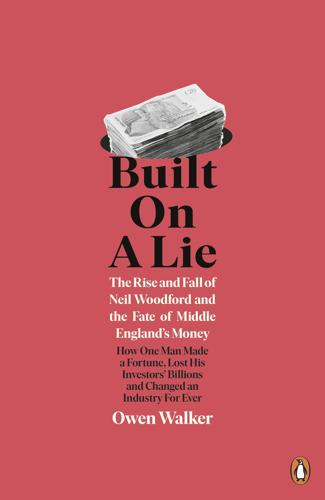
Built on a Lie: The Rise and Fall of Neil Woodford and the Fate of Middle England’s Money
by
Owen Walker
Published 4 Mar 2021
The government too tried to foment the public’s craze for investing in privatized companies. If individuals owned personal stakes in the newly listed businesses, the theory went, they would feel closely connected to the government’s market reforms and less inclined to boot it out at the next general election. Thatcher herself summed up what she described as her ‘popular capitalism’ crusade at the 1986 Tory Party conference in Bournemouth. ‘Millions have already become shareholders. And soon there will be opportunities for millions more, in British Gas, British Airways, British Airports and Rolls-Royce. Who says we’ve run out of steam? We’re in our prime!’ Many of the big privatizations had been funded by workers buying shares in their own employers, but for the upheaval to be a success, they would need to be persuaded to buy shares in other companies as well.

Vassal State
by
Angus Hanton
Published 25 Mar 2024
If she were alive today, Thatcher would be shocked by just how much of the economy is US-owned and how servile the UK government has become, yet it was she who made it all possible through her strong advocacy of privatisations that were blind to the nationality of the buyers, and her general non-interventionist stance. She might also be horrified to see how her idea of ‘popular capitalism’, with citizens as shareholders, has collapsed, with private shareholdings shrinking year by year. In her second full year in office, 1981, only 3.6 per cent of UK shares were owned overseas. By 2020 that number was more than 56 per cent.8 Vassals in a vassal state The vassalage of the UK as a whole has been mirrored by the way in which sections of the population have become vassals.
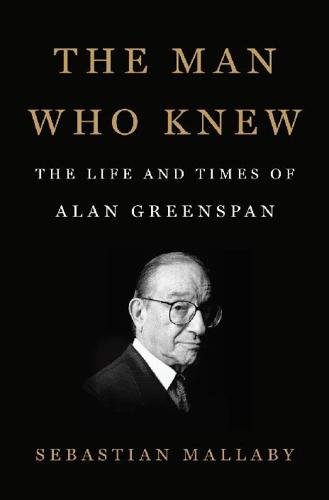
The Man Who Knew: The Life and Times of Alan Greenspan
by
Sebastian Mallaby
Published 10 Oct 2016
John Cassidy, “All Together Now: New Theories on Why We Can’t Stay Out of the Stock Market,” New Yorker, March 27, 2000. 52. Quoted in John Cassidy, “Striking It Rich: The Rise and Fall of Popular Capitalism.” 53. John Makin, interview by the author, October 30, 2014. Makin held a position at AEI and was also on the staff of the hedge fund Caxton Associates. 54. “It took me a long time to live that down.” Byron Wien, interview by the author, September 9, 2011. 55. John Cassidy, “Striking It Rich: The Rise and Fall of Popular Capitalism.” 56. Don Kohn confirms that the “irrational exuberance” phrase was intended to attract notice. “The paragraph on irrational exuberance was debated a lot internally.
…
In his ninth NBI lecture, delivered in 1964, Greenspan had declared that “standards of living tend to grow at an accelerating rate.” The more ideas people generated, the more they were in a position to generate further ideas. 27. The Wall Street seer was Barton Biggs, speaking to John Cassidy of the New Yorker. See John Cassidy, “Striking It Rich: The Rise and Fall of Popular Capitalism,” New Yorker, January 14, 2002. 28. Woodward, Maestro, 171. See also Alan Greenspan, The Age of Turbulence: Adventures in a New World (New York: Penguin Books, 2008), 172. Slifman notes that Greenspan’s view that profits were relatively easy to measure was not shared by staff experts. Larry Slifman, e-mail to the author, October 7, 2015. 29.

The Fourth Revolution: The Global Race to Reinvent the State
by
John Micklethwait
and
Adrian Wooldridge
Published 14 May 2014
In all, Thatcher privatized three-quarters of Britain’s state-owned companies, raising over £30 billion for the exchequer and shifting forty-six major businesses with 900,000 employees to the private sector.28 She encouraged ordinary people to buy shares, thus creating the image, at least, of “popular capitalism.” And she extended her crusade against Leviathan to the emerging sprawl in Brussels. “We have not successfully rolled back the frontiers of the state in Britain,” she thundered in Bruges in 1988, “only to see them re-imposed at a European level.”29 Thanks to Thatcher, the center of gravity of British politics moved dramatically to the right.

Volt Rush: The Winners and Losers in the Race to Go Green
by
Henry Sanderson
Published 12 Sep 2022
But that same month he bought his first shares in SQM, at rock bottom prices. He would be back. SQM was at the beginning of a five-year privatisation process, which would eventually lead to Ponce Lerou holding majority control of the company. The privatisation was initially designed to give workers shares in their companies under the slogan ‘popular capitalism’, with a promise to make workers owners of their companies. At the time the labour law stated that all companies had to give ten percent of the profit every year to the workers, in proportion to the salaries they received. At SQM workers were awarded part of the company’s profits in shares.
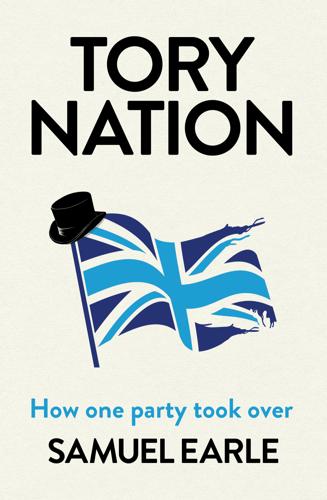
Tory Nation: The Dark Legacy of the World's Most Successful Political Party
by
Samuel Earle
Published 3 May 2023
This notion provided the intellectual motivation for Margaret Thatcher’s infamous ‘right to buy’ scheme, wherein council houses – built in their hundreds of thousands after the Second World War – were sold off to tenants at bargain prices, with the hope of creating a new class of homeowning Tory voters. It was part of Thatcher’s plan for ‘popular capitalism’: ‘a crusade to enfranchise the many in the economic life of the nation’. But it was also about shifting power from the public sector to the private sector. In 1988, Thatcher also abolished rent controls. Today’s housing crisis – extortionate rents, unaffordable homes and a chronic shortage of social housing, where landlords have all the rights and rewards and renters are almost powerless – is the result, along with local government’s chronic absence of funding: like Cameron’s programme of austerity, right to buy cut off councils from one of their main sources of income.
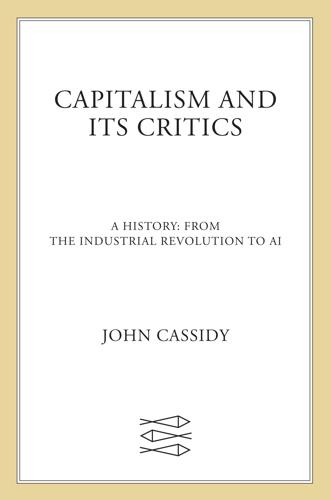
Capitalism and Its Critics: A History: From the Industrial Revolution to AI
by
John Cassidy
Published 12 May 2025
In 1984, more than 2 million Britons, many of them first-time investors, bought shares in British Telecom, the national phone provider, which were deliberately priced at a discount from the company’s true value.26 Two years later, about 1.5 million people bought stock in British Gas, the national gas utility.27 Thatcher would later claim that the sale of British Telecom, which established the privatization model, “did more than anything else to lay the basis for a share-owning popular capitalism in Britain.”28 Just as striking as Thatcher’s actual reforms was the impact her long premiership had on attitudes toward the economy and economic policymaking. By the time the Labour Party finally made it back to Downing Street in 1997, it had rebranded itself as New Labour, abandoned its (largely symbolic) commitment to common ownership of the means of production, and openly embraced market forces, including welfare-to-work policies.
…
Britain’s first-past-the-post electoral system translated an electoral plurality into large majorities in the House of Commons. Still, despite these qualifications, Thatcher’s strident nationalism together with her get-tough message on violent crime and welfare recipients appealed to certain elements of the British working class. So did her “popular capitalism” agenda, such as giving public housing tenants the right to buy their homes and selling cheap shares in companies like British Telecom and British Gas. “Council house buyers, privatized share purchasers, and employed union leavers had distinctive attitudes toward nationalization and redistribution,” the political scientist Geoffrey Garrett wrote in a 1992 study of survey data from the 1980s.

On Writing Well (30th Anniversary Edition)
by
William Zinsser
Published 1 Jan 1976
If you look long enough you can usually find a proper name or a metaphor that will bring those dull but necessary facts to life. Even more time went into the sentence about Venice and Versailles. Originally I wrote, “Names like London and Paris didn’t turn up in our accounts of earlier trips.” Not much fun there. I tried to think of other popular capitals. Rome and Cairo? Athens and Bangkok? No better. Maybe alliteration would help—readers enjoy any effort to gratify their sense of rhythm and cadence. Madrid and Moscow? Tel Aviv and Tokyo? Too tricky. I stopped thinking of capitals and tried to think of tourist-infested cities. Venice popped into my head and I was glad to see it; everybody goes to Venice.

Zero-Sum Future: American Power in an Age of Anxiety
by
Gideon Rachman
Published 1 Feb 2011
In 1984 he once again asked Americans the question he had posed during the presidential election of 1980: “Are you better off than you were four years ago?” They answered massively in the affirmative and gave him a sweeping reelection victory. In both the United States and Britain, conservatives exulted that they had discovered a potent political formula for gaining blue-collar votes: a combination of lower taxes, social conservatism, popular capitalism, and patriotism. In the United States these voters were called “Reagan Democrats”; in Britain they were labeled “Essex man,” after a working-class county just outside London. Reagan and Thatcher shared a common outlook on the world. Both were suspicious of détente, and both were determined to take a tougher line with the Soviet Union.
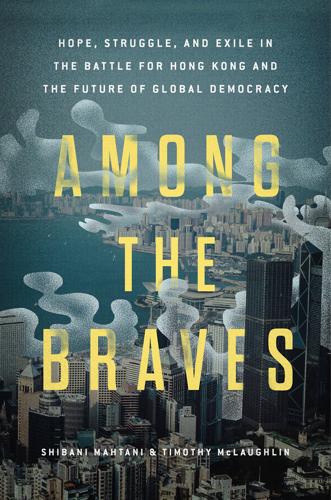
Among the Braves: Hope, Struggle, and Exile in the Battle for Hong Kong and the Future of Global Democracy
by
Shibani Mahtani
and
Timothy McLaughlin
Published 7 Nov 2023
With the British willing to negotiate over Hong Kong, Deng believed he had an answer to both territorial problems: an arrangement called “one country, two systems”: the territory could keep its own autonomous systems, but would be under Beijing’s sovereignty. If it worked in Hong Kong, perhaps Taiwan could be won over, too. Thatcher, the daughter of a grocery-store owner and herself a free-market evangelist who championed “popular capitalism,” had ideas of her own. The question of Hong Kong came at a high point in Thatcher’s storied career. Buoyed by her country’s military victory in the Falklands in June 1982, just before first negotiations with the Chinese began, Thatcher vowed she wouldn’t easily give up the colony. Her Foreign Office advisers were sure that Deng would not budge on regaining full control of Hong Kong, but it was a “difficult transition” for her to accept their fatalism.1 Charles Powell, her private secretary and among her most trusted advisers on foreign affairs, explained her thinking: “If you’ve just won a war 8,000 miles away to regain British sovereignty in a small place, you’re not particularly keen within a year to be handing it back in quite another place.”2 Thatcher wanted to hold on to Hong Kong Island, the city’s financial center and seat of government, as well as Kowloon, densely populated and buzzed by jumbo jets.
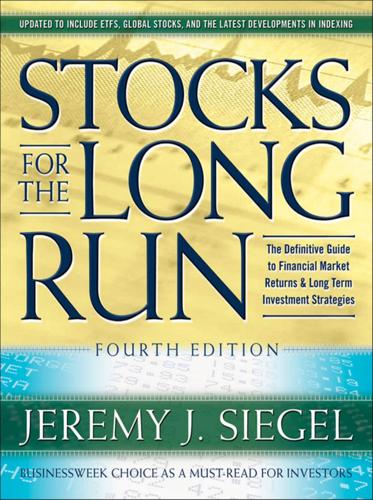
Stocks for the Long Run, 4th Edition: The Definitive Guide to Financial Market Returns & Long Term Investment Strategies
by
Jeremy J. Siegel
Published 18 Dec 2007
Data collected by Robert Shiller of Yale University confirmed that despite the severe bear market of 2001 to 2002, as of January 2007, three-quarters of investors believed that stocks were the best long-term investment.37 And with good reason. Stocks have returned a very healthy 15 percent per year measured from the market lows reached in October 2002 through the end of 2006. By 2007, stocks as measured by the popular capitalization-weighted indexes were at or near all-time highs, having recovered all their losses sustained in the bear market. The bull and bear markets of the last decade were no different from the bull and bear markets that preceded them. As stocks rose, the bulls came out of the woodwork, and at the top they fabricated theories that would support even higher prices.
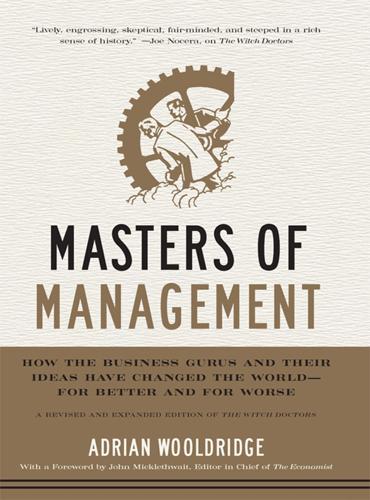
Masters of Management: How the Business Gurus and Their Ideas Have Changed the World—for Better and for Worse
by
Adrian Wooldridge
Published 29 Nov 2011
In a broad sense, he is right: the real bosses are not the likes of John D. Rockefeller and J. P. Morgan, but the workers themselves. They are the ones who own most of society’s capital, through their pension rights, and who receive most of society’s rewards, through their wages and social benefits. But would it not be better to call this popular capitalism? Drucker’s work can also be criticized for its unevenness. Whereas The Concept of the Corporation is a model monograph, tightly argued and based on original research, some of his later books can be rambling and repetitive, full of recycled examples. His voice has also become less distinctive.
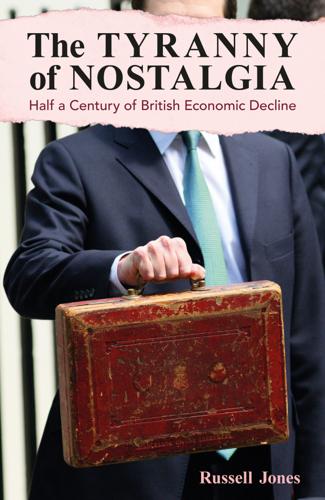
The Tyranny of Nostalgia: Half a Century of British Economic Decline
by
Russell Jones
Published 15 Jan 2023
COM (85) 310 (June). 18 Lord Cockfield’s reward for his hard work was to be sacked by Thatcher. See R. Denham. 2007. Lord Cockfield. The Guardian, 11 January (www.theguardian.com/news/2007/jan/11/guardianobituaries.obituaries). 19 D. Parker. 2012. The Official History of Privatisation, Vol. II: Popular Capitalism, 1987–97. Routledge, London. 20 See H. Phelps Brown. 1981. Labour market policy. In Changing Perceptions of Economic Policy (ed. F. Cairncross). Methuen, London. 21 The Gini coefficient is the measure of statistical dispersion most commonly used to represent income or wealth inequality.
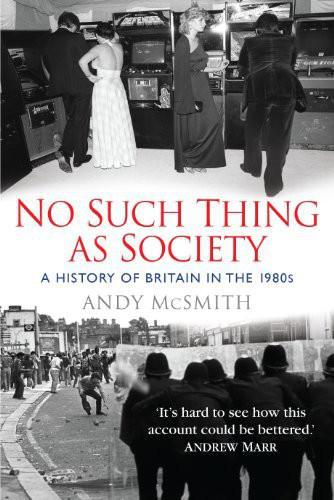
No Such Thing as Society
by
Andy McSmith
Published 19 Nov 2010
However, the death of a local MP in October meant that Vincent Hanna, a BBC journalist with a talent for getting his own way, was due up north to cover the by-election, equipped with one of the new phones. The now customer-conscious BT obligingly extended the network several days early for his benefit.25 The success of the BT sale awoke Margaret Thatcher’s enthusiasm for something she now called ‘popular capitalism’. She declared in October 1986: ‘The great political reform of the last century was to enable more and more people to have a vote. Now the great Tory reform of this century is to enable more and more people to own property.’26 In that spirit, privatizations came thick and fast, and everyone was invited to join the great share sale.
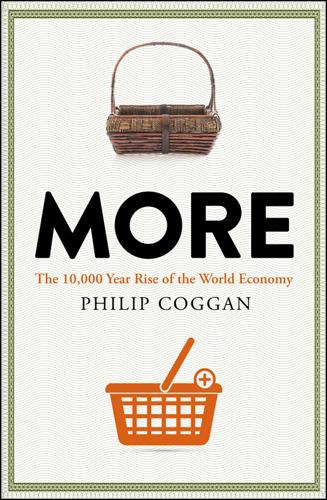
More: The 10,000-Year Rise of the World Economy
by
Philip Coggan
Published 6 Feb 2020
Thatcher’s second term was marked by a year-long miners’ strike, the failure of which symbolised the decline of trade union power. And it also saw the speeding up of the transfer of businesses from the public to the private sector, a process that was known as privatisation. The telecom and gas industries were privatised with the help of marketing campaigns aimed at the general public. The goal of this “popular capitalism” was to create a class of share- and property-owners who would be resistant to the appeal of socialism. All told, 50 companies were privatised or sold under Thatcher, including the national airline, the airport operator, the main steel company and the water utilities. The electricity and railway companies would follow under Thatcher’s successor, John Major.

The Rise of the Network Society
by
Manuel Castells
Published 31 Aug 1996
Indeed, 18.5 percent of households had zero or negative net wealth. Much has been made of the shareholders democracy in the new forms of capitalism, but table 4.29 shows the extreme concentration of stock ownership in 1995, even when we include stock plans, mutual funds, individual retirement accounts, and other instruments of popular capitalism. While America is an extreme case of income inequality and declining real wages among the industrialized nations, its evolution is significant because it does represent the flexible labor market model at which most European nations, and certainly European firms, are aiming.141 And the social consequences of such a trend are similar in Europe.

The Atlantic and Its Enemies: A History of the Cold War
by
Norman Stone
Published 15 Feb 2010
The British balance of payments had been suffering, because oil prices declined, and Lawson took the circumstances of 1985 as guide: the pound had indeed declined by 16 per cent against the Mark, which would of course add to inflation. In 1986 these circumstances were to change, as the boom went ahead. ‘Big Bang’ meant that the City could bid for world financial supremacy, and ‘popular capitalism’ was an enormous success, with a great part of the population now owning assets in property or even shares. The City firms turned into ‘security houses’ as in New York, and the wonder occurred that the British sold automobiles again, even if they were from foreign-managed factories. The British addiction to buying property meant that credit based upon property assets was in heavy demand.

Europe: A History
by
Norman Davies
Published 1 Jan 1996
In Britain, in emulation of the Dutch, this period saw the growth of all the permanent institutions of public credit—the Bank of England (1694), the Royal Exchange, and the National Debt. The first steps of the Industrial Revolution were taken in the 1760s. [CAP-AG] Britain produced John Law (1671–1729), a racy Scots financier, who invented the first experiment for harnessing colonial trade to popular capitalism. His grand ‘Scheme’ and Banque royale (1716–20) in Paris, which was patronized by the Regent, and which coincided with the similarly disastrous South Sea Company in London, created a veritable fever of speculation by selling paper shares in the future of Louisiana. The Bubble burst; thousands, if not millions, of investors were ruined, Law fled, and France was permanently inoculated against credit operations.